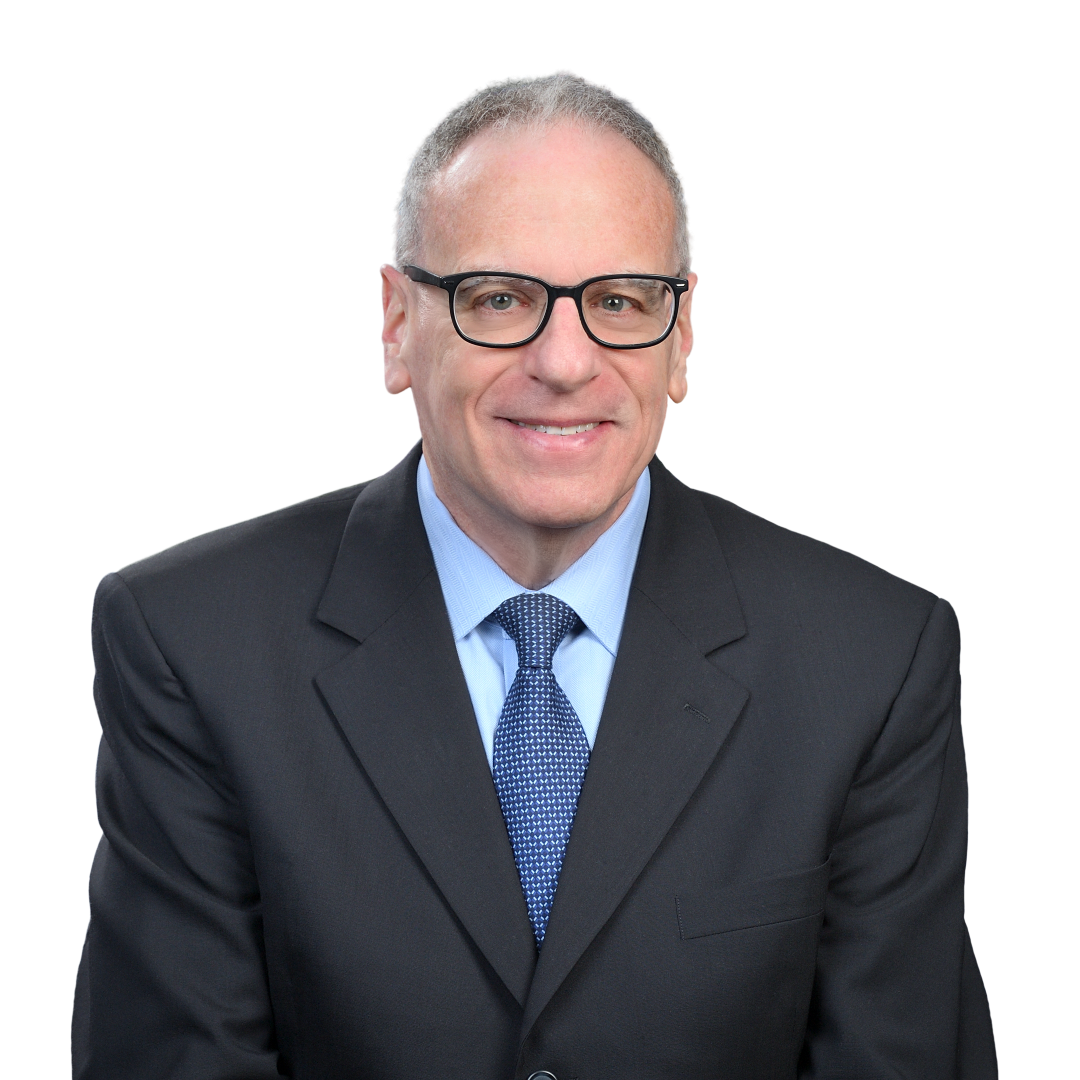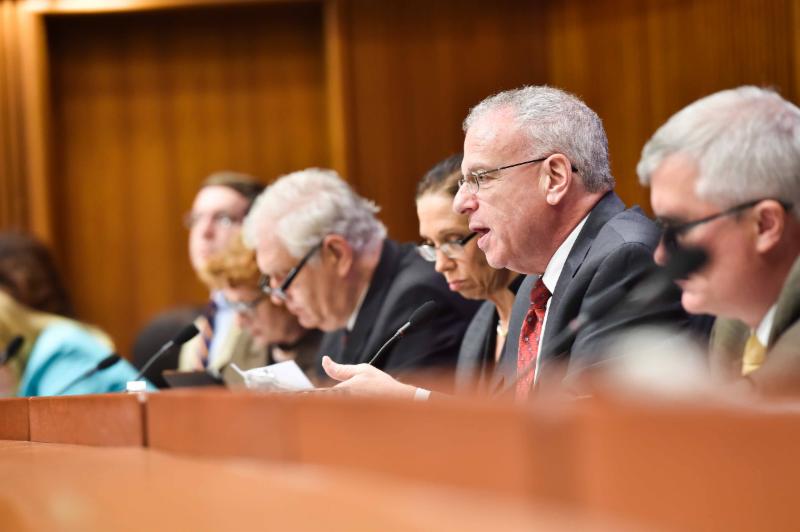Dinowitz Holds State Officials Accountable at Nuclear Bailout Hearing
Bronx Assemblyman Jeffrey Dinowitz, Chair of Committee on Corporations, Authorities and Commissions, questions head of Public Service Commission on proposed Zero-Emissions Credit program derided as bailout for upstate nuclear plants; Dinowitz raises concerns over impact to downstate ratepayers, state's process for devising, implementing plan
Today's joint hearing with Committee on Consumer Affairs and Protection, Energy and Environmental Conservation comes after earlier hearing in March that PSC officials declined to attend, sparking criticism from Dinowitz and fellow lawmakers
Albany, N.Y. – A little more than one month after state officials declined an invitation by legislators to address concerns over a state clean energy program that would offer substantial subsidies to four upstate nuclear plants, New York State Assemblyman Jeffrey Dinowitz (D - Bronx) and fellow lawmakers were finally given a chance today to question the Public Service Commission on the proposal and address issues of transparency and the potential impacts for downstate ratepayers.
In Albany this morning, the Assembly Standing Committees on Corporations, Authorities and Commissions; Consumer Affairs and Protection; Energy; and Environmental Conservation convened a joint public hearing to discuss the Clean Energy Standard established by the Public Service Commission (PSC). The standard, which the PSC approved in 2016, establishes the goal of obtaining 50% of the state's electricity from renewable sources by 2030.
At issue in today's hearing was a component of the standard that would require state utility companies to purchase so-called Zero-Emissions Credits (ZECs) from the New York State Energy Research and Development Authority (NYSERDA), and use them to subsidize four upstate nuclear plants owned by the Exelon Corporation.
Dinowitz has frequently criticized the proposal, contending that the costs, estimated at as much as $7.6 billion over its 12-year lifespan, would disproportionately fall on downstate ratepayers. The Bronx Assemblyman had previously raised these concerns at an earlier joint hearing in March that lawmakers convened, but which PSC officials refused to attend. In a letter to lawmakers following the March hearing, PSC officials both blamed the chairs for failing to provide advance notice of the hearing, and contended that pending lawsuits by environmental groups prevented them from testifying.
With PSC Interim Chair Gregg Sayre and NYSERDA President and CEO John Rhodes both testifying today, Dinowitz took the opportunity to grill the state officials on the issues. Dinowitz began his questions by asking the PSC Chair how the agency calculated its estimates for energy consumer rates.
"Was there a calculation done to estimate energy consumer rates only paid by the service area where the four nuclear plants were located," Dinowitz asked.
"No," responded Sayre. "Benefits from the ZEC program in the form of carbon reduction are statewide and based on benefits per megawatt hour."
Dinowitz added that a primary benefit of the program would come in the form of the 2,000-plus jobs that would stay in the upstate communities where the nuclear plants are located. The Assemblyman asked the PSC chair if this benefit was included in cost-benefit calculations, to which Sayre replied that the ZEC program was "always conceived as an emissions program, not a jobs program," adding that they were "secondary benefits" that did not factor in the agency's decision-making. Dinowitz disputed this characterization.
"I represent parts of the Bronx, which is perhaps the poorest county in the state," said Assemblyman Dinowitz in questioning PSC Chair Sayre. "Increases in energy costs amount to a regressive tax that primarily affects the people who are worse off economically. Why are the costs of this program being paid for primarily by downstate ratepayers when the benefits aren't evenly distributed?"
In addition to today's hearing, Dinowitz has taken other steps to increase accountability on the issue. Last week, the Bronx Assemblyman introduced legislation requiring the PSC's five-member board of commissioners to have a majority present for votes and meetings. Currently, the board is down to two members after Chair Audrey Zibelman left the PSC in March.
Utility consumers have already begun seeing a slight increase on their bills, as additional charges began in April. However, the PSC has blocked utilities from line itemizing the charge to explain the additional costs, preventing consumers from knowing the source of the increase. So far, the only confirmed dollar amount of the program is the initial two year period costing $966 million, meaning it is unclear just how much these charges may increase over time.

